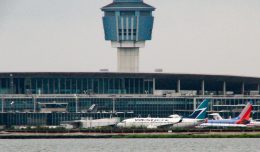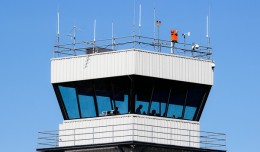BRUSSELS — Six European countries have signed an agreement towards creating the Single European Sky air traffic control system, the European Union (EU) said on Thursday.

Belgium, France, Germany, Luxembourg, the Netherlands and Switzerland have signed an agreement to create the “Functional Airspace Block–Europe Central” (FABEC), a key step in achieving the Single European Sky, which will see the establishment of several functional airspace blocks (FABs).
The FABEC airspace, characterized by closely interwoven civil and military traffic routes, has one of the highest traffic densities in the world and is located at the very core of Europe. Most of the large European airports and major civil and military airways are located in this area.
The agreement creates the framework, general conditions and governance under which the contracting states intend to ensure air traffic management and the provision of air navigation services in the context of the Single European Sky legislation.
The group of countries will put an end to the current fragmentation of European airspace and enable more efficient and shorter flights. This, in turn, will increase safety and reduce aviation’s impact on the environment.
Thursday’s agreement represents the third functional airspace block, after the UK–Ireland FAB and the Denmark–Sweden FAB. The other EU Member States are expected to sign similar agreements in the next two years.
“The FABEC agreement is an important step in reducing airspace fragmentation, as it covers the core area of Europe with many large airports,” European Commission Vice-President Siim Kallas, responsible for transport, said.
“The functional airspace blocks will be able to satisfy the growing capacity requirements of all airspace users with a minimum of delays by managing air traffic more dynamically. At the same time, safety standards and overall efficiency will be enhanced,” Kallas added.
The creation of functional airspace blocks is one of the cornerstones of the Single European Sky performance scheme, whose objective is “to achieve optimal performance in the areas relating to safety, environmental sustainability, capacity, cost-efficiency, flight efficiency and military mission effectiveness, by the design of airspace and the organisation of air traffic management (ATM) in the airspace concerned regardless of existing boundaries.”
For air navigation service providers, the creation of the functional airspace blocks opens cooperation opportunities, which will facilitate a response to the new binding performance targets established under the Single European Sky legislation.
The FABEC will be governed by a Council, assisted by four committees: airspace committee; harmonization and advisory committee; financial and performance committee; and national supervisory authority committee.
A consultation board will be established to ensure the consultation of the air navigation service providers on matters relating to the provision of services within FABEC.






